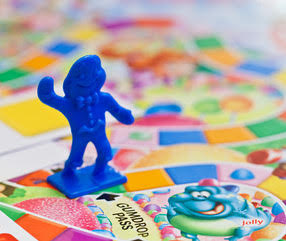
For the past few years, every June, I share a summer reading list with you all, of books that you (hopefully) won’t find on the many, many reading lists out there now. My suggestions this year are here.
Also, summer readers, The New York Public Library has come up with a clever, fun reading game for kids. It looks like a board game—it reminds me of Candy Land. It reminds me of something else, too.
Recently, I published s short essay that I’d been working on for a couple of years. As I was looking at the game, I realized that, it contained many of the same steps that helped me get that essay published.
Step one is: “Check out a book from the library.” Did I mention my summer reading list?
Next up is: ask a librarian about their favorite book. Another perspective is key for both reading well and writing well. Luckily, I’m part of an amazing writing group, who read several drafts of my essay, and pushed and challenged me to make it better. Whether it’s taking a class, forming a writers group, or reaching out to good friends (and librarians) with great taste, every writer needs to ask for help.
Speaking of community the next stop is “Attend a program.” Readings, panel discussions, write-ins, story slams, poetry slams, meet-ups—go to them. They’ll not only expand your own knowledge, but they give you the opportunity to share your insights with others. I attended a meeting of the group Women Who Submit, where another writer suggested I take a closer look at a literary journal she thought might be a good home for my essay. Turns out, she was right.
The next two stops on the board are to recommend books to others and write reviews — just as you’ve received feedback on your work, this is a chance to return the favor for other writers. You’ll sharpen your critical eye, which you can then turn on your own stories. But more importantly, it’s just good karma.
As you slide along the board, you tick off a little bubble each time you finish reading something — books, plays, essays, screenplays, TV pilots. The goal is to create a rhythm that becomes a habit—write, read, meet, share, critique, submit. Repeat.
It’s like going to the gym, only for your brain: The reps eventually pay off. The essay I published recently? Rejected 15 times before it was accepted.
But those reps, this rhythm, they not only help you publish one essay; through them, you build a literary life. And in that respect, it has something else in common with Candy Land — it’s sweet.

Kelly Caldwell
Dean of Faculty


